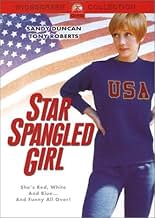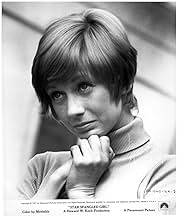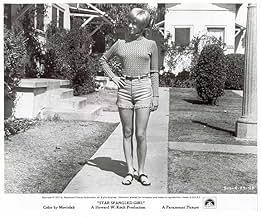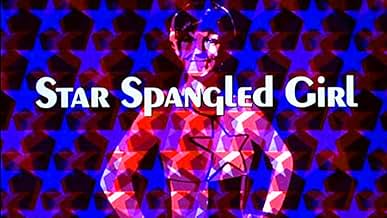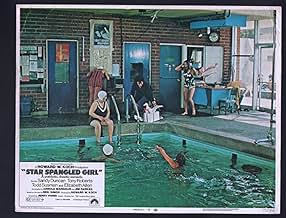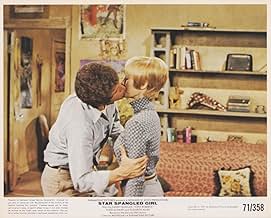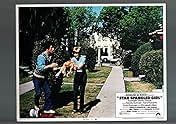In this adaptation of Neil Simon's stage play, 1960's radical journalists Norman Cornell and Andy Hobart fall in love with the girl next door, patriotic Olympic hopeful Amy Cooper, who is th... Read allIn this adaptation of Neil Simon's stage play, 1960's radical journalists Norman Cornell and Andy Hobart fall in love with the girl next door, patriotic Olympic hopeful Amy Cooper, who is the kind of square that they are fighting.In this adaptation of Neil Simon's stage play, 1960's radical journalists Norman Cornell and Andy Hobart fall in love with the girl next door, patriotic Olympic hopeful Amy Cooper, who is the kind of square that they are fighting.
- Director
- Writers
- Stars
- Awards
- 1 nomination total
- Landlady
- (as Betty Ellen)
- Mr. Karlson
- (as Artie Lewis)
- Neighbor
- (uncredited)
- Checker in Market
- (uncredited)
- Policeman
- (uncredited)
- Policeman
- (uncredited)
- Neighbor
- (uncredited)
- Director
- Writers
- All cast & crew
- Production, box office & more at IMDbPro
Featured reviews
It's not a bad film as such, but showcases a kind of self indulgent nature by the theatre elite who want more to show their abilities for the sake of it. Not a bad aim, but it does get somewhat tiring.
I think one of the key things about this film is that there isn't too much umph. And it could be because Simon is slightly out of his element here, writing about a place he wants to be part of, but is wholly unfamiliar with. Ergo we get quick witted Southern California characters with New York sensibilities, when their social extraction is Manhattan beach, and not Manhattan itself.
Still, it has a certain charm, even if the characters are reluctant fish out of water via Simon's writing. Southern California doesn't bother with lots of well educated verbiage loaded with political references, but more rather how life can be easier, and is not to be taken too seriously. So it is with the LA metroplex with lots of petty desires and image seeking. So it is that Simon misses the mark with this play set in such a milieu, and so it is that Star Spangled Girl remains an interesting experiment.
See it once.
Neil Simon wrote some great plays. He also wrote lots of twaddle (try "The Cheap Detective" or "Murder By Death," which has a great cast with nothing to say).
The Olympian (perky Sandy Duncan) is "conservative." I despise terms like "left" and "right" and "liberal" and "conservative" (or even "radical" since Republicans and their ilk were called "radical" under Presidents Lincoln and Trump). All these terms are historically meaningless. The USSR types who kidnapped Gorbachev were called "conservative" even though "liberals" here want exactly what they wanted: viz., a Communist autocracy.
But they're the terms we have to use because we're too ignorant to have jargon with greater precision in our combative political vocabulary.
As a writer myself (though not of plays) I can only smile at the likes of Simon, who probably never rubbed shoulders with a "conservative" but out of the depths of his ignorance sets up easy targets he smugly knocks down with softballs.
Curiously enough, though, the "conservative" America-loving Duncan is the only sympathetic character in the movie, terrorized as she is by Susman.
Frankly, the publishers of the underground paper aren't too radical. They're just a couple of nice boys too full of themselves. Tony Roberts' "radicalism" is no deeper than apparently wanting to tear things down simply because they're there. Susman doesn't seem to have the gumption or wherewithal to operate without Roberts' tyranny over him. Yet Susman is the only one who earns any genuine smiles.
Frankly, when I go to the movies I don't want political debate, even with soft targets and idiots on both sides. Simon's constant stream of dialogue gets tiresome quickly. Hardly a great movie; but if you love Simon and have to see everything he wrote, go for it.
Duncan was talented, but this is the nadir of the early "extra-perky girl" roles her career was trapped in for a while. The amazing thing is that Todd Susman, who plays one of two not-remotely-convincing "hippie" boys living next door to her Georgia emigre in Los Angeles, is much more grating. Tony Roberts cannot escape the pervasive sitcom rhythms, but manages to look comparatively good by simply not acting like a dog on its hind legs for 90 minutes. What passes for big comic setpieces, when they're not just like multicamera living-room sitcom scenes, are pathetically bad-the one where a duck gets loose at the YMCA pool makes the slapstick in Duncan's Disney vehicles look like Jacques Tati, it's so haplessly staged and edited.
How did this movie get made? Its prospects were so forlorn, the best it could manage was a title song sung by Davy Jones, the former Monkee whose own career as a recording artist died with the Prefab Four's demise some years earlier. This movie isn't just unfunny, it's shrill, flat, and rather desperate, with no one onscreen resembling a human being...or being entertaining as a caricature of one.
Did you know
- TriviaThe film was made and released about five years after its source play of the same name by Neil Simon was first performed in 1966. The original Broadway production of "Star Spangled Girl" opened at the Plymouth Theater on 21st December 1966 and ran for 261 performances until 5th August 1967. It starred Connie Stevens, Anthony Perkins and Richard Benjamin. The theater marquee for the production can be seen during the opening titles of TV series That Girl (1966). The play's setting is described in its intro as being "A duplex studio apartment in San Francisco".
- Quotes
Norman Cornell: I'm sorry for what happened...
Amy Cooper: That's alright.
Norman Cornell: Andy... she spoke nicely to me...
- ConnectionsReferences King Kong (1933)
- SoundtracksGirl
Written by Charles Fox & Norman Gimbel
Performed by Davy Jones
recording supervised by Jackie Mills

